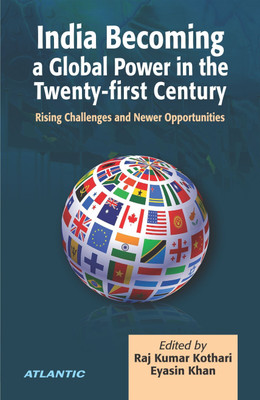India Becoming a Global Power in the Twenty-First Century(English, Hardcover, unknown)
Quick Overview
Product Price Comparison
During the cold war era, India was positioned on the periphery of global politics resulting in minimal or no influence on major issues affecting the international system. New Delhi had focused on the Third World solidarity through Non-aligned Movement, and complete nuclear disarmament to make its presence felt on the international stage. The arena of international politics was largely dominated, guided and controlled by the major powers that determined the trajectory of global politics. Today, because of its meteoric rise in economic strength and military capability, India has moved to the centre of global politics. In this backdrop, the present volume extensively focuses on the conceptual and theoretical aspects centring on the myth and reality of IndiaŌĆÖs rise as a global power. Introduction apart, the book has been divided into three parts based on conceptual, theoretical and strategic considerations. Section one deals with conceptual and theoretical issues that explain the very nature of IndiaŌĆÖs rise in the direction of becoming a global power since early 1990s, i.e. in the post-cold war years. Section two focuses on the strategically important areas from the perspective of India becoming a potential global power in the twenty-first century. The third and final section attempts to show how far or to what extent New DelhiŌĆÖs march towards global power status has been practiced into reality through assessing IndiaŌĆÖs bilateral relations with some of the major powers like China and Japan, and a few strategically important neighboursŌĆöPakistan, Bangladesh, Nepal and Myanmar. The book would be very useful to the students of international relations, researchers, diplomats and policymakers and evoke further scholarly debates on the issues taken up.


